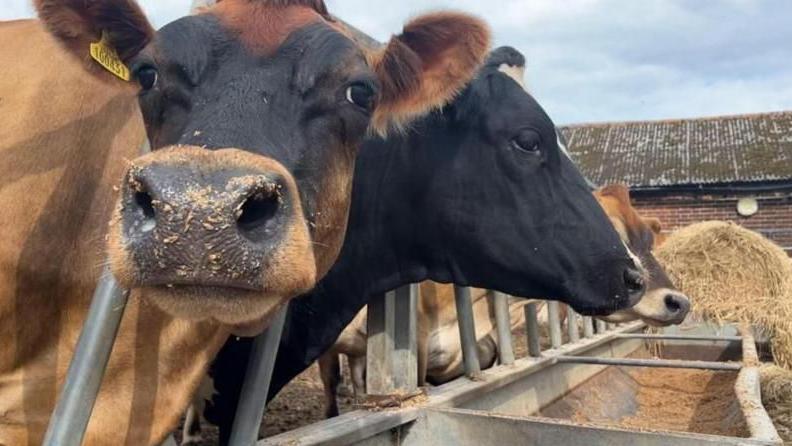Bluetongue a major challenge to farming - minister

Wales recorded its first cases of the livestock disease this year on Friday, with a further two cases on Wednesday
- Published
Bluetongue poses "a major challenge" to Wales' farming industry with further cases confirmed and more under investigation, the rural affairs secretary has told Senedd members.
Appearing in front of the Economy, Trade and Rural Affairs Committee, Huw Irranca-Davies pleaded with farmers to vaccinate their animals, saying "for goodness sake... talk to your vet".
Wales recorded its first cases of the livestock disease this year on Friday, on a farm near Presteigne in Powys and another near Chepstow in Monmouthshire.
A further two cases have now been identified in cattle on farms near Llangammarch Wells and Gladestry in Powys.
Wales' chief vet Richard Irvine told the committee that animal health officials were also investigating another two suspected cases.
The four farms where the disease had been found were now under movement restrictions and the affected animals had or would be culled, he said.
First cases of deadly livestock virus identified in Wales
- Published26 September
Five cases of bluetongue identified in county
- Published24 September
"Vigilance is crucial," he added, urging farmers to be on the lookout for signs of the disease, which can include redness and ulcers in and around animals' mouths and hooves, lameness and fever.
Spread by midges, bluetongue poses no threat to the public or food safety but can have serious consequences for cloven hoofed animals like sheep and cattle.
Dr Irvine warned of a significant escalation in cases in England over recent weeks.
He cautioned too that it may be several months before the risk posed by midges is reduced as a result of lower temperatures.
"From analysis of data from past years, that seasonal low-vector period is typically around the turn of the calendar year - December or January," he said.
As farmers approached sheep breeding - or tupping - season, he urged them to consider vaccinating their flocks, saying "there is still time".
Bluetongue had been shown to have "long term impacts" including reduced fertility, abortions, stillbirths, and foetal deformities.
Nearly 230,000 farm animals had been vaccinated in Wales so far, he explained - "a small fraction of the livestock population".
Irranca-Davies said if there was "one message to come out of my appearance in front of this committee it's speak to your vet and talk about vaccination".
"In those regions where farmers have been slow to vaccinate and the disease has got a hold the impacts have been severe - on animal productivity and welfare and on the livelihoods of farms as well," he said.